A published writer at 99
Retired pilot Ho Weng Toh is among seniors finding the time and motivation to write late in life, in their 80s and 90s
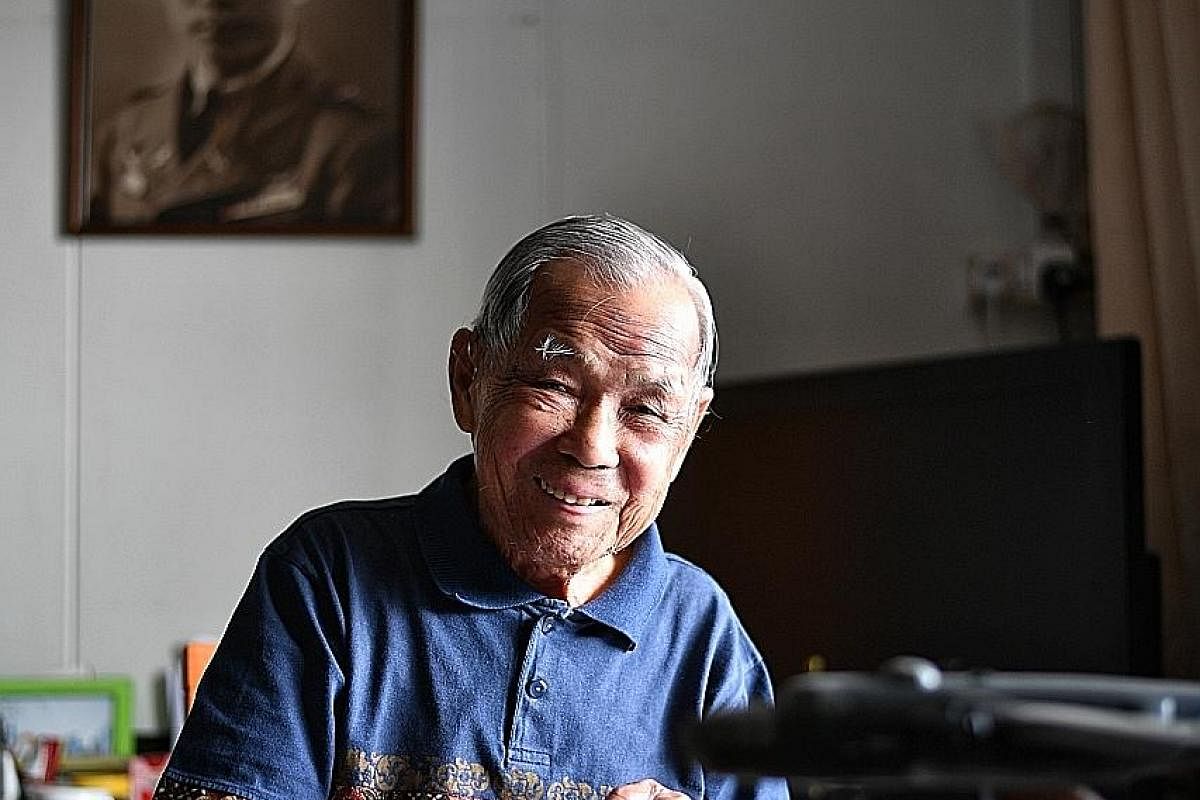
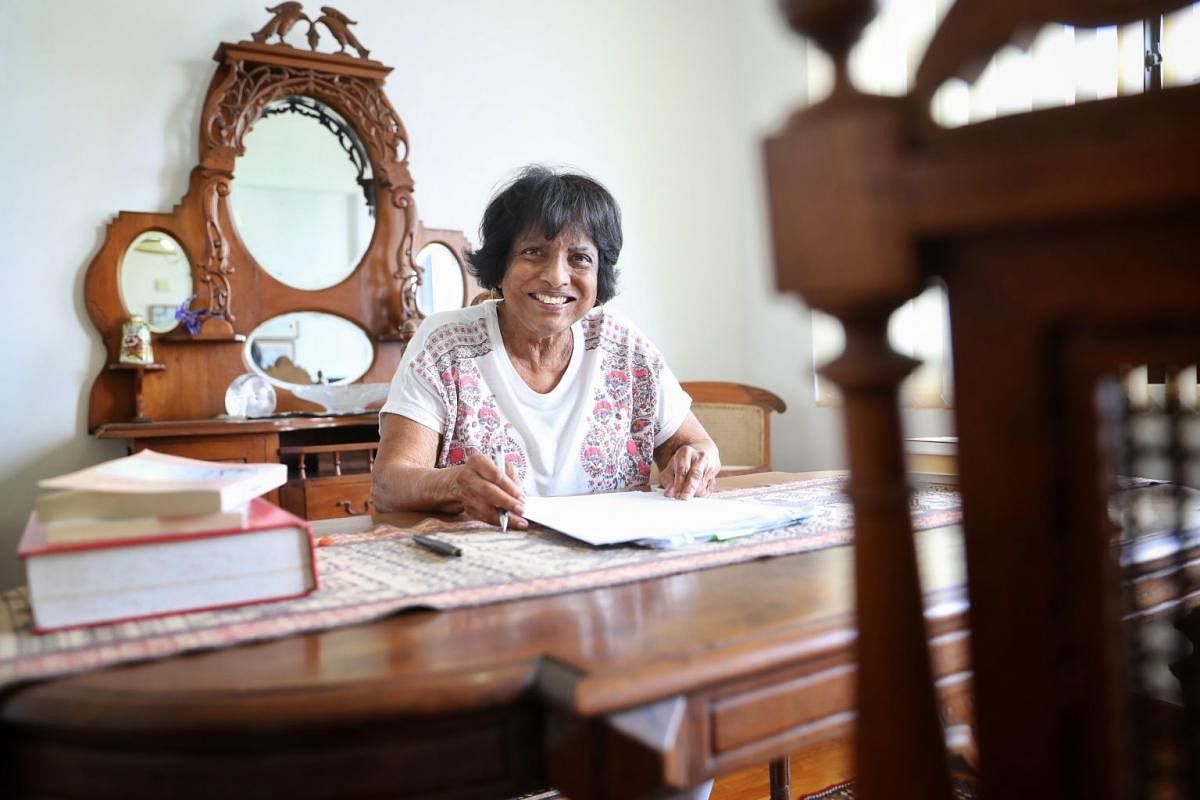
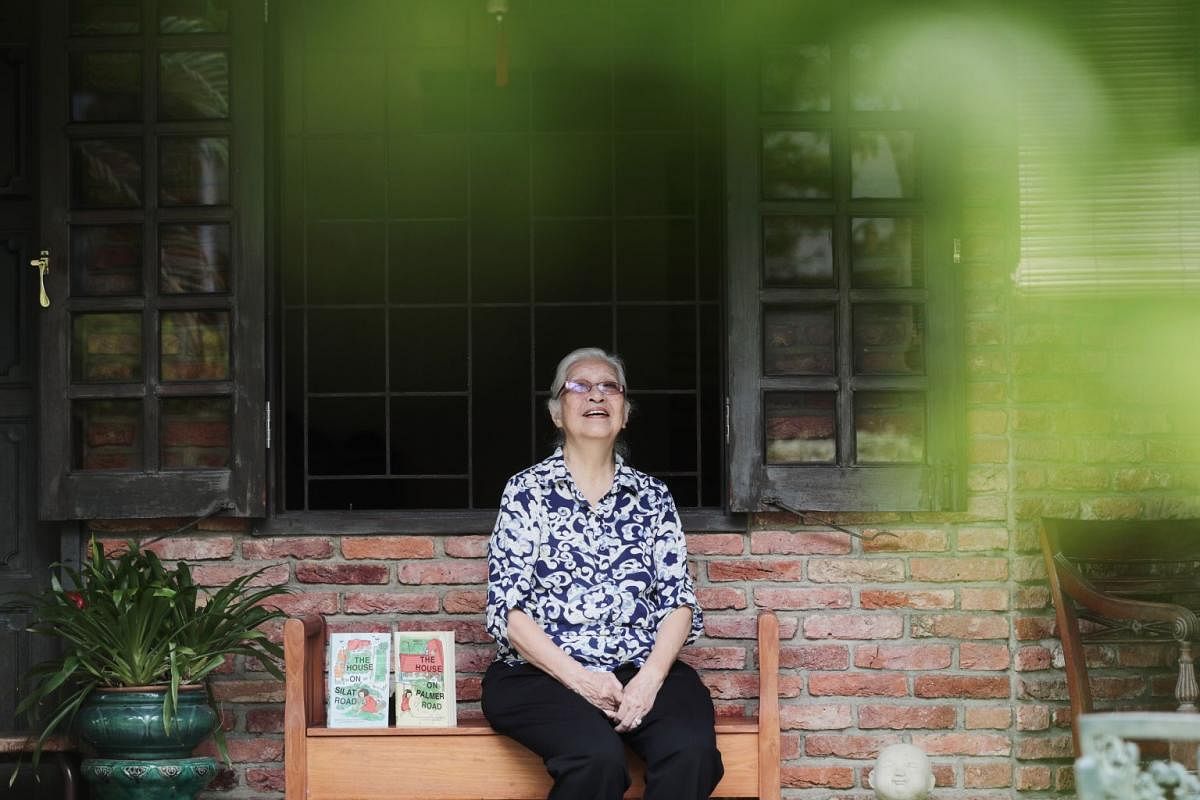
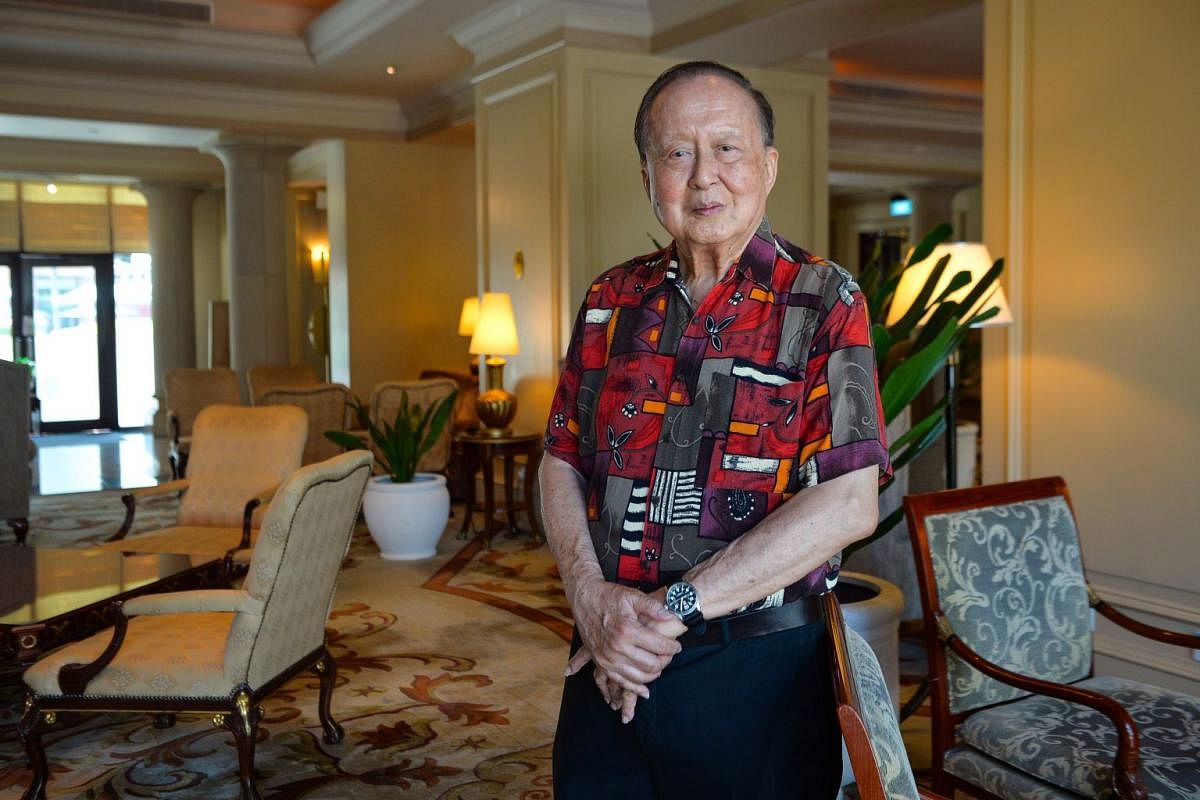
Age has not stemmed the pens of pre-eminent writers such as poet Edwin Thumboo, 85, historian Wang Gungwu, 88, and Ambassador-at-large Tommy Koh, 81, who have all recently put out new books.
Others are turning to publishing late in life rather than letting their experiences go unrecorded.
From an 82-year-old poet who composes haiku on his phone to a 99-year-old former fighter pilot writing his memoirs, The Straits Times speaks to four Singaporeans in their 80s and 90s who are finding a second spring in writing books.
Ho Weng Toh, 99
From surviving as a refugee student to flying under enemy fire, retired pilot Ho Weng Toh's life has been a colourful one.
Now, the 99-year-old is finally putting down his experiences in his first book, Memoirs Of A Flying Tiger, which will be published next month.
"I think I'm quite interesting," says Captain Ho, one of the last few remaining "Flying Tigers", the legendary Chinese and American joint flying squadron that fought against the Japanese in World War II.
Born in Ipoh to a shoe shop merchant, he was studying in Hong Kong when the Japanese invaded in 1941. He endured the Japanese Occupation for a few months before escaping with fellow students to China, bribing bandits to take them across the no man's land between borders.
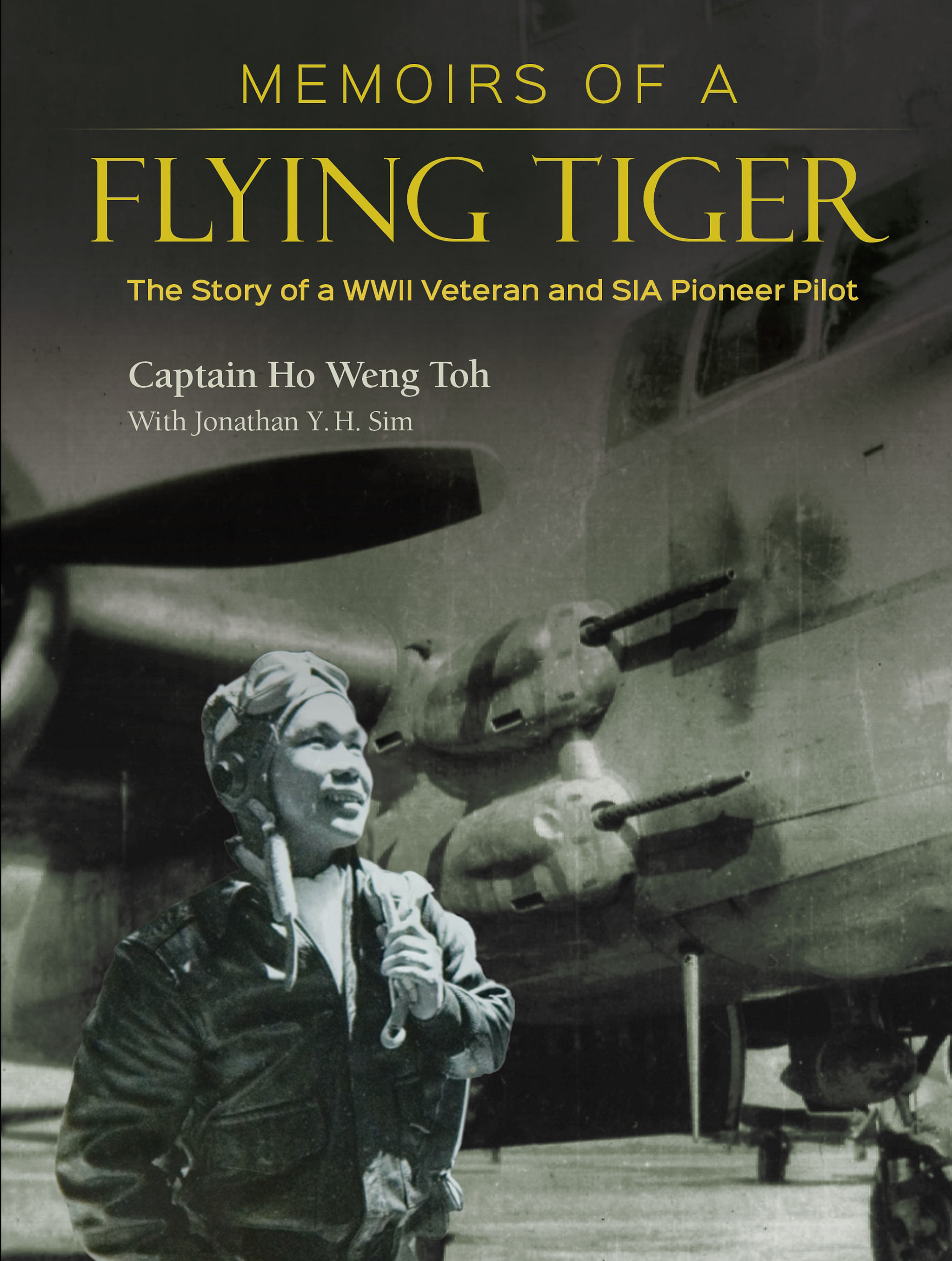
Barely able to afford university and living off soya beans and tangerines, he saw an advertisement in the newspaper for the Chinese air force.
Being short, he never expected to make the cut, but he did.
"I told myself I can't afford to fail or I'll have to go back to university and survive on soya beans."
In the war, he flew a B-25 Mitchell bomber in 18 combat missions over occupied China.
"Every mission, it was a big question mark as to whether we would come back," he recalls. "But I never had a scratch."
After the war, he became a commercial pilot. In 1951, he moved his family to Singapore where he joined Malayan Airways, which later branched off into Singapore Airlines (SIA). He flew with SIA for 30 years until his retirement.
Today, he continues to mentor young pilots, attend aviation conferences and visit his old flying comrades around the world.
Though he never fancied himself an author, he kept a diary during the war in case something happened to him. He also wrote letters to his wife Augusta Rodrigues, a housewife, on whatever paper he had at hand, including the backs of air traffic control forms.
His wife died in 1977 of lung cancer. They have three children and two grandchildren.
Several people, including billionaire Robert Kuok and former minister George Yeo, have urged him over the years to write his memoir.
He has been working on it for five years, despite being hospitalised for a stroke in 2017 and again last year, when he fractured his hip in a fall. He finished the book in collaboration with freelance writer Jonathan Sim.
"I'm curious how I survived so long," Ho muses. "But I still find a lot of meaning in life. There's so much to live for."
• Memoirs Of A Flying Tiger ($86 before GST, hardcover; $28 before GST, paperback) will be published by World Scientific next month.
Rosaly Puthucheary, 83
In 1957, as a young teacher in a village near Seremban, Rosaly Puthucheary would hear gunfire at night from the guerilla warfare in the jungles during the Malayan Emergency.
A story came to her, about a young woman who joins the insurgents to be with her lover, only to watch him die. She wrote it down and hid it in her drawer.
"I was terrified it would incriminate my family," recalls the retired teacher, who is 83 this year. Her older brother James Puthucheary was at the time detained in Changi Prison following a 1956 student riot.
She finally published the story, Locked In, last year in her non-fiction book Tongue-tied, an account of her journey as a writer.

"Writing helps me," says Puthucheary, who suffers from persistent migraines and spends a great deal of time sleeping due to side effects from her medication.
"I can't live a whole life around my migraines. I use the spare time when I don't have them to write."
She began publishing poetry in 1978, inspired by a difficult divorce, but published intermittently in the years after that as she was focused on her career teaching English literature at Anglo-Chinese Junior College and raising her two sons.
After she retired in 2001, the stories began spilling out. She has published two novels - The Tessellated Path (2009) and In The Wake Of Terror (2012) - several poetry collections and Under A Shadow (2015), an account of her life under the Japanese Occupation.
She made the news when she received her PhD in English literature at the age of 69 from the National University of Singapore.
She is already working on her next book, a literary analysis of early local writers, including the poetry of two of her late brothers, James and George Puthucheary.
"I'm not interested in publishing for monetary reasons," she says. "When you paint a picture, you like to see it hanging on a wall. If you write a book, you'd like to see it published."
• Under A Shadow ($14.02 before GST) is available from www.ethosbooks.com.sg. Tongue-tied ($21.40) is available from the author upon request.
Si-Hoe Sing Sow, 86
Prompted by questions from her granddaughter, Si-Hoe Sing Sow decided in her 80s to write children's books about her own childhood.
The retired science teacher and vice-principal, who turns 86 this year, has published two books, The House On Palmer Road (2017) and The House On Silat Road (2018), with her daughter, food and travel writer Sim Ee Waun, 51.
Each book, illustrated by artist Lim An-Ling, is devoted to one of the houses she lived in as a child, both of which were built by her father. While the first evokes idyllic days, the second is a darker look at World War II through the eyes of a child.
"I have a lot of free time," she says. "I want to put the happy memories of my childhood on record for my family."
Not all these memories were happy, of course. It was challenging for her to put into words what she went through during the war: the struggle to get rations to feed her family of 13; the fear every time the Japanese came looking for her father, who helped raised funds for the Kuomintang in China; the terror of fleeing the house as bombs rained down.
Besides her own memories, she relied on her third sister's diaries and old maps from the National Archives of Singapore for the books.
The mother of three chose to write for children because she feels that reading materials for kids in Singapore need to be richer. "If we want them to love to read, they should start young."
She thinks there are more elderly people writing today because their level of education is higher than that of previous generations and they now expect more from their leisure time. "We have had a richer experience of life and we want to find something meaningful to do during retirement."
Her granddaughter, student Sim Mei-Ann, 19, who urged her to tell her stories , says: "It's a glimpse into the past that textbooks can't give."
• The House On Palmer Road ($12.84) and The House On Silat Road ($14.98) are available at Books Kinokuniya, Books Ahoy, Woods in the Books, Huggs-Epigram Coffee Bookshop and Closetful of Books.
Oliver Seet, 82
As a student at the University of Malaya in the 1950s, budding poet Oliver Seet joined a group of young writers who gathered nightly at the sarabat stall outside their Dunearn Road hostel.
In the wake of World War II and on the brink of independence, they wrestled with the idea of shaping post-colonial literature.
Many among their number would go down in literary history, such as Cultural Medallion recipient Edwin Thumboo, poet Wong Phui Nam and writer Lloyd Fernando.
Seet, however, became a teacher. Though he has written hundreds of poems since his student days, most did not see the light of day until his 82nd birthday last month, when he launched his debut collection Once at The Arts House.
Its 200 and more poems span some six decades of his life, with subjects including travel, food, his Christian faith and odes to friends.

"It is a legacy I hope to leave," says the father of two and grandfather of six. "I realised I would not be doing myself justice if I did not publish the culmination of my life's work."
Though his passion for writing flowered in university, he was so preoccupied with his teaching work that he did not write for years.
He received a PhD in applied linguistics from the National University of Singapore and was an associate professor of English at the National Institute of Education before he retired, after which he began writing actively again.
Some of his poems have appeared in anthologies, but it was only last year that his old friend Thumboo managed to persuade him to publish his own collection.
Thumboo, 85, writes in his preface to Once: "As early as 1956, Seet came up as a far fuller poet than most of us when we arrived. I still remember his poems, their power and reach... You always felt a whole person at work, and assiduously."
Seet, who is also a keen landscape photographer, believes that keeping up creative pursuits can help stem the tide of dementia. These days, he is experimenting with haiku, which he composes on the Notes app on his smartphone.
He dedicated Once to his wife of 48 years, Mrs Seet Sook Ching, who died of cancer in 2010. He wrote the poem Deathless Love for her some years after her death, when he was travelling in Bangkok and was suddenly stricken by a "sense of deep sadness" at the thought of her.
He says of his collection: "It embodies all the things I know, all the people I have loved, some of whom have since gone on. But once, we were together."
• Once ($26.75) is available at Books Kinokuniya.
Join ST's Telegram channel and get the latest breaking news delivered to you.
A version of this article appeared in the print edition of The Straits Times on August 20, 2019, with the headline A published writer at 99. Subscribe

